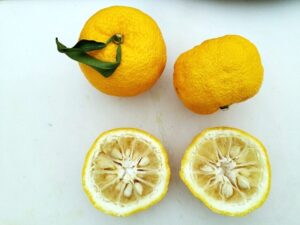What are you going to do on the 21st of December? I’m asking not to agitate you rushing into ‘spiritual’ events on the day but to remind you that ‘JUST BE’ is so important on the day.
In Japanese, we call this day “冬至 (to-ji)” meaning “We reach to Winter”. In the memory of my childhood (in Tokyo), the theme of this season was not so much about the darkness or coldness but more about inner calmness (perhaps it’s different in northern Japan). It is the maximum ‘yin’ time of the year and we traditionally enjoy eating Kabocha (Japanese pumpkin) and taking Yuzu-yu (Japanese citron bath) at home or hot spring while reflecting & closing down this year and solemnly preparing for a new year (No Christmas in traditional Japanese culture).
In Western culture, especially in countries closer to the North Pole, the sunlight reaches them the shortest duration in the year. It is obvious that the relationship with the Sun here (Sweden) is more dramatic than in Japan because of the sharp decrease in sunlight during winter. No wonder in old times that people felt ‘darkness’ as a threat coming together with coldness and sickness. Simultaneously, ancient knowledge knew that it was a vital time for the land and people for resting and nurturing to grow in the time of light.
After living here over a decade, I am finally spending time observing the seasonal shift from autumn to winter in Sweden day by day. I am whole-heartedly perceiving and feeling the darkness creeping up my everyday life.
Every Solstice is special every year but it is extra-special in 2020. Not only it coincides with the Great Conjunction of Jupiter & Saturn but also the transit of the Moon, from Pisces to Aries, helps us ‘just be’ and ‘be who you are’. Just be for yourself.
PS What were you doing on the 20th of June this summer? The Summer Solstice was also very powerful by almost coinciding with the New Moon/ solar eclipse in Cancer. It may be interesting to reflect on what you’ve felt in this summer and how do you feel now?
Image: Yuzu (Japanese citron) from Wikipedia
